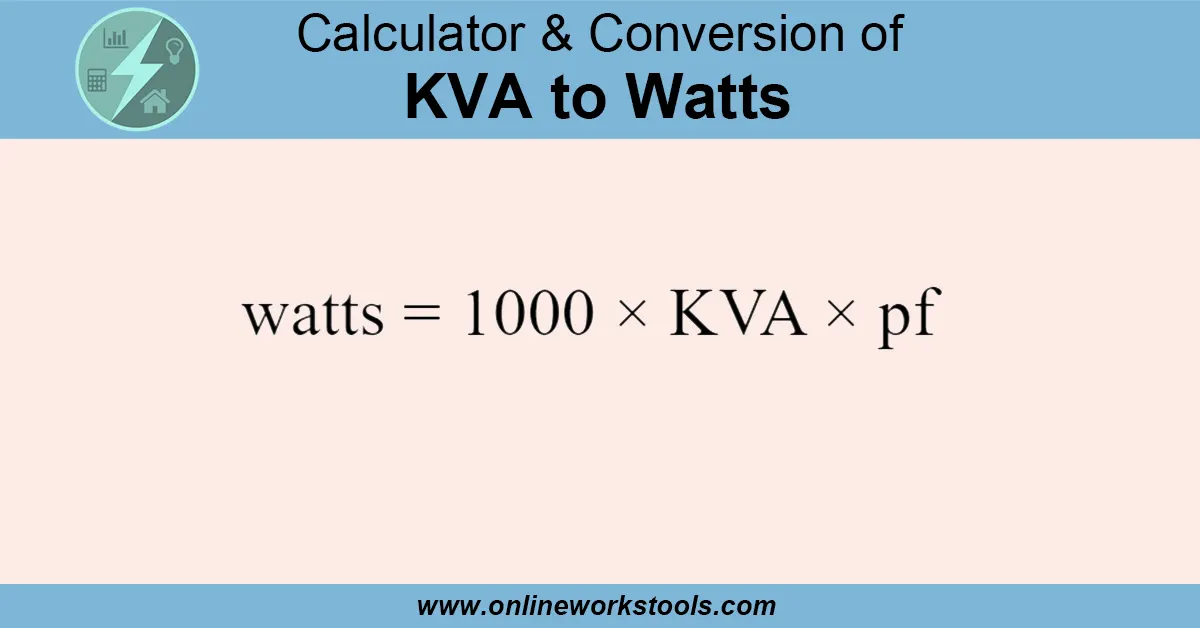Conversion using the KVA to Watts Formula
How to Calculate Wattage from Apparent Power KVA and Power factor pf using AC Phase current.
The Real Power P in Watts w is calculated as the 1000 times the apparent power S in Kilovolt-amps KVA, times the power factor pf. Plug these values into the formula:
For Example, let's convert 16 kVA to watts using a power factor of 0.8.
Suggested Reading
Warning: Undefined variable $posts in /home/u952353048/domains/onlineworkstools.com/public_html/related/rspec.php on line 5
Fatal error: Uncaught TypeError: shuffle(): Argument #1 ($array) must be of type array, null given in /home/u952353048/domains/onlineworkstools.com/public_html/related/rspec.php:6 Stack trace: #0 /home/u952353048/domains/onlineworkstools.com/public_html/related/rspec.php(6): shuffle() #1 /home/u952353048/domains/onlineworkstools.com/public_html/calc/kva-to-watts-calculator/index.php(101): include_once('/home/u95235304...') #2 {main} thrown in /home/u952353048/domains/onlineworkstools.com/public_html/related/rspec.php on line 6
